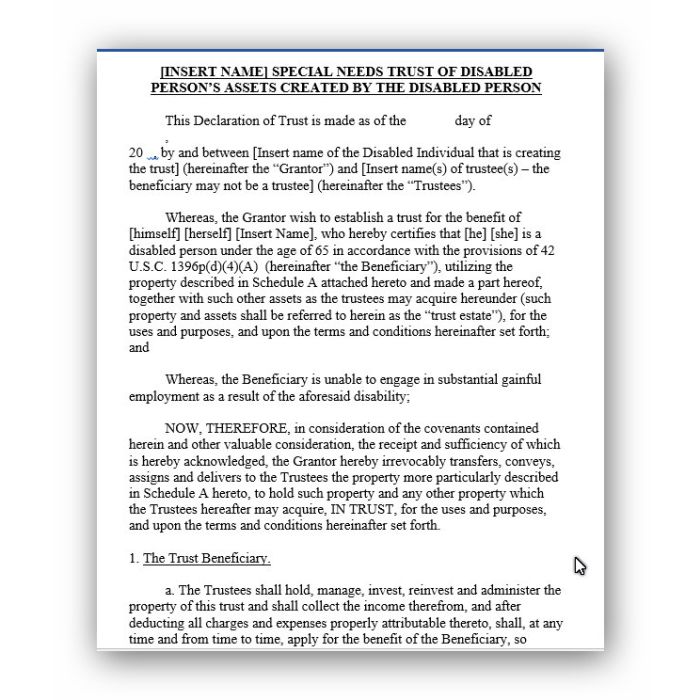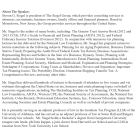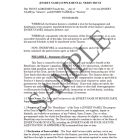Special Needs Trust Of Disabled Person’s Assets Created By The Disabled Person For The Disabled Person (15 Pages)
This is a trust authorized by law (42 U.S.C. 1396p(d)(4)) and funded with the assets of a disabled individual under the age of 65 who is also the trust beneficiary. Until December of 2016, the trust could not have been created by the individual. It was typically created by the parents, grandparents or other relative of the disabled person, or pursuant to a court order. It is often created as the result of a personal injury settlement or recovery, or after an inheritance by the disabled person. An important change to the law was made late in 2016. The 21st Century Cures Act expanded the opportunity for this trust by inserting “the individual” after “for the individual by” in 42 U.S.C. 1396p(d)(4)(A). The effective date of the amendment applies to trusts established on or after December 13, 2016. This means that individuals may now establish a “first-party special needs trust” themselves if they are able and wish to do so.
This version of the Special Needs Trust is one created by the disabled person for the benefit of himself or herself.
This is a trust authorized by law (42 U.S.C. 1396p(d)(4)) and funded with the assets of a disabled individual under the age of 65 who is also the trust beneficiary. Until December of 2016, the trust could not have been created by the individual. It was typically created by the parents, grandparents or other relative of the disabled person, or pursuant to a court order. It is often created as the result of a personal injury settlement or recovery, or after an inheritance by the disabled person. An important change to the law was made late in 2016. The 21st Century Cures Act expanded the opportunity for this trust by inserting “the individual” after “for the individual by” in 42 U.S.C. 1396p(d)(4)(A). The effective date of the amendment applies to trusts established on or after December 13, 2016. This means that individuals may now establish a “first-party special needs trust” themselves if they are able and wish to do so.
Author:
Steven G. Siegel is president of The Siegel Group, which provides consulting services to attorneys, accountants, business owners, family offices and financial planners. Based in Morristown, New Jersey, the Group provides services throughout the United States. Mr. Siegel is the author of many books, including: The Grantor Trust Answer Book (2012 and 2013 CCH); CPA’s Guide to Financial and Estate Planning (AICPA 2012); and Federal Fiduciary Income Taxation (Foxmoor 2012). In conjunction with numerous tax planning lectures he has delivered for the National Law Foundation, Mr. Siegel has prepared extensive lecture materials on the following subjects: Planning for An Aging Population; Business Entities: Start to Finish; Preparing the Audit-Proof Federal Estate Tax Return; Business Acquisitions: Representing Buyers and Sellers in the Sale of a Business; Dynasty Trusts; Planning with Intentionally-Defective Grantor Trusts, Introduction to Estate Planning; Intermediate-Sized Estate Planning; Social Security, Medicare and Medicaid: Explanation and Planning Strategies; Subchapter S Corporations: Using Trusts as Shareholders; Divorce and Separation: Important Tax Planning Issues; The Portability Election; Generation-Skipping Transfer Tax: A Comprehensive Review; and many other titles. Mr. Siegel has delivered hundreds of lectures to thousands of attendees in live venues and via webinars throughout the United States on tax, business and estate planning topics on behalf of numerous organizations, including The Heckerling Institute on Tax Planning, CCH, National Law Foundation, AICPA, Western CPE, the National Society of Accountants, the National Tax Institute, Cohn-Reznick, Professional Education Systems, Inc., Foxmoor Education, many State Accounting Societies and Estate Planning Councils as well as on behalf of private companies. He is presently serving as an adjunct professor of law in the Graduate Tax Program (LLM) of the University of Alabama, and has served as an adjunct professor of law at Seton Hall and Rutgers University law schools. Mr. Siegel holds a bachelor’s degree from Georgetown University (magna cum laude, phi beta kappa), a juris doctor from Harvard Law School and an LLM in taxation from New York University Law School.




